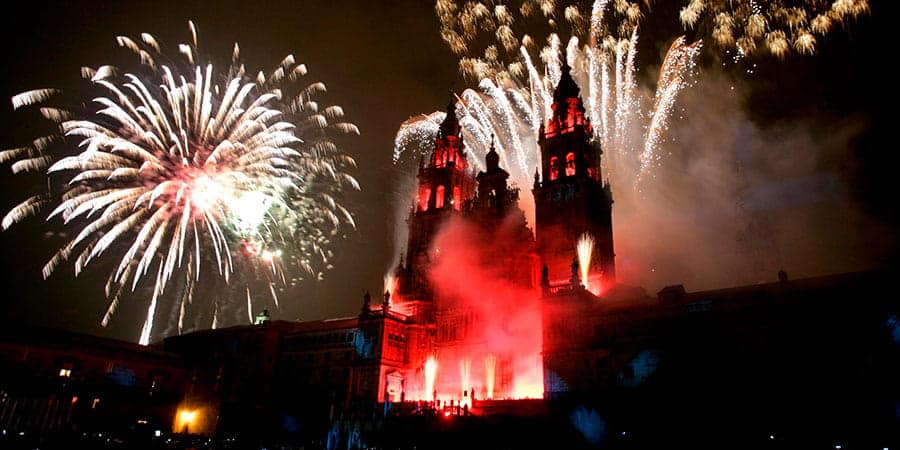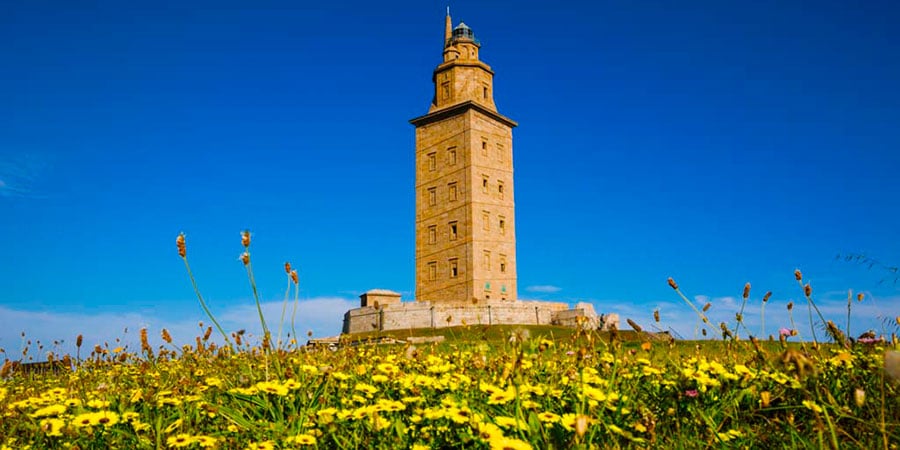Nestled in the northwestern corner of Spain, Galicia stands as a fascinating anomaly, distinguished by its unique cultural tapestry woven from threads of Celtic heritage. Unlike the flamenco rhythms or bullfighting spectacles that characterise other regions of Spain, Galicia offers bagpipes, stone forts, and mythical folklore that draw a line straight back to Celtic origins. In this article, we’ll delve into the rich Celtic culture and roots of Galicia, exploring its ancient history, traditions, and cultural significance.
The Ancient Castros
A remarkable relic of Galicia’s past are the ‘castros’ — ancient fortified settlements built by the Celts. These stone-built communities, often strategically located on hills, offer a panoramic view of the surrounding landscape. An excellent example is the Castro de Santa Trega, situated near the town of A Guarda. Exploring these castros offers an enthralling glimpse into the life and architecture of the Celts who once populated this region.
The Language
Galicia has its own language, Galician, which is spoken alongside Spanish. Interestingly, this Romance language is not just influenced by Latin but also has etymological connections to Celtic languages. Several place names and some vernacular words have Celtic roots, testifying to the deep linguistic impact of its ancestral culture.
Musical Echoes
Galicia’s music is infused with its Celtic lineage, most notably through the bagpipes, or ‘gaita’ in Galician. The gaita holds a revered place in Galician culture, often taking centre stage at festivals and ceremonies. Tunes played on the gaita echo the melodies heard in other Celtic nations like Scotland and Ireland, reflecting a shared musical heritage.
A Mythological Landscape
Galicia’s folklore is rich with myths and legends that have Celtic echoes. The region overflows with mysticism, with tales of witches performing rituals in remote places and stories of enchanted forests where spirits wander. The ‘meigas,’ Galicia’s version of witches, are particularly famous and even have a saying associated with them: “Eu non creo nas meigas, pero habelas, hainas” — “I don’t believe in witches, but they exist.”

Festivals and Rituals
No place demonstrates its culture better than at festivals, and Galicia is no exception. The region hosts various celebrations that highlight its Celtic heritage, including the Festival of Ortigueira. This event gathers Celtic musicians from around the world and is one of the most significant folk music festivals in Spain.

Spiritual Connection with Nature
A prominent feature of Celtic belief is the deep spiritual connection with nature, something which is very evident in Galicia. The rías, or estuaries, and mist-covered mountains enhance the region’s lush landscapes, making it renowned for its natural beauty. Galicians deeply connect with nature, just as their Celtic ancestors did. Explore the Ria de Arousa on the Camino Espiritual from Vigo, along the coast.
The Camino de Santiago
Although the Camino is a Christian pilgrimage ending in the Galician capital of Santiago de Compostela, its roots can be traced back to pre-Christian times when people would walk to the ‘End of the Earth’ — what is now called Finisterre — in a pagan ritual. The path is said to lie along ley lines, which are alignments in the landscape sacred to both the Celts and, later, to Christians.
Craftsmanship and Art
The Celts mastered craftsmanship, and their legacy continues in Galicia’s craftwork, especially in the intricate designs of its jewellery. The ‘triskele,’ a motif of three interlocked spirals often seen in Celtic art, makes frequent appearances in Galician crafts.
The Culinary Connection
Last but not least, Galicia’s food also shows Celtic influences. Hearty stews and bread are staples, much like in other Celtic lands. The use of meats, especially pork, in Galician cuisine also harks back to its Celtic past.
The imprint of Celtic culture on Galicia is indelible, enriching the region with its music, myths, and traditions. From ancient stone forts to the mystical sound of bagpipes, Galicia provides a compelling experience for anyone interested in Celtic history and culture. This unique blend of Spanish and Celtic influences makes Galicia a treasure trove for cultural enthusiasts and history buffs alike.
For more information on any of our Camino routes or to book your Camino adventure, feel free to contact us. Plan your Camino effortlessly and get an instant quote with our Camino Planner.

i am of galician and celtic ancestry, i have never heard of this group of humans. the galicians. looking up as much info as i can and maybe wanting to visit